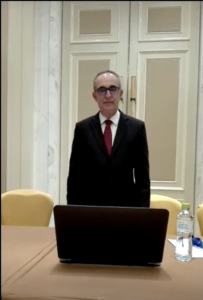Training in Processes and Regulations of CODEX for Central America and the Dominican Republic.
Background:
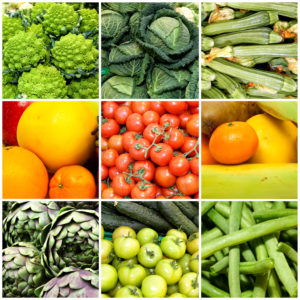 The growth and globalization of world food trade allow our consumers to access a wider variety of products and our producers to enter the different international markets, but at the same time increases the risk of foodborne diseases (ETAs) between countries. This situation makes a growing number of governments and consumers themselves aware of the importance of ensuring higher quality and safety of food.
The growth and globalization of world food trade allow our consumers to access a wider variety of products and our producers to enter the different international markets, but at the same time increases the risk of foodborne diseases (ETAs) between countries. This situation makes a growing number of governments and consumers themselves aware of the importance of ensuring higher quality and safety of food.
This requires countries to make efforts to develop and harmonize international food standards that protect the health and rights of consumers through the trade-in safe and nutritious foods, avoiding, in parallel, the creation of unnecessary obstacles to the trade-in food and On the contrary, they promote better production practices that increase the competitiveness of companies.
In the elaboration of such international standards, the Codex Alimentarius Commission (CAC), created in 1963, is the benchmark and world leader. In this sense, the United Nations Food and Agriculture Organization (FAO) and the World Health Organization (WHO) (2006) state: “The Codex Alimentarius offers all countries a unique opportunity to join the community international cooperation to harmonize food standards and participate in their implementation on a global scale. It also allows countries to participate in the formulation of international food standards and contribute to the development of codes of hygienic practices for the elaboration of recommendations related to compliance with standards. “
In the same vein, it is the reference body for Food Safety within the framework of the Agreement on Sanitary and Phytosanitary Measures of the World Trade Organization (WTO) when developing standards, guidelines, and codes of food practices based on science designed to protect the health of consumers. In this way the influence of the decisions of this organization extends to all continents of the world and for all countries, maintaining active and effective participation in Codex is essential to achieve competitiveness and maintain and expand access to international markets. foods.
 Added to this; In recent years, the Latin American and Caribbean region has achieved greater visibility in the Codex, some countries are leading issues of interest to the world, it has reached an effective participation to achieve that standards that could harm the interests of the region are not have approved or have been returned for an additional review and discussion, this through the cohesion of the region in order to define common fronts and to seek alliances with other regions.
Added to this; In recent years, the Latin American and Caribbean region has achieved greater visibility in the Codex, some countries are leading issues of interest to the world, it has reached an effective participation to achieve that standards that could harm the interests of the region are not have approved or have been returned for an additional review and discussion, this through the cohesion of the region in order to define common fronts and to seek alliances with other regions.
Therefore, given the importance of the topic for international food trade, it is imperative to strengthen the Codex organizational structure, made up of different sectors (public, private, academia, and consumers) in order to consolidate a solid structure of the country to meet the challenge of actively participating in the harmonization of Codex standards.
General objective:
Strengthen the knowledge and technical capacities of the members of the Subcommittees and the National Codex Committee (CNC), as well as the development of the Codex regulations in Central America and the Dominican Republic.
Reaches:
- The officials of the governments of Guatemala, El Salvador, Honduras, Nicaragua, Panama, Costa Rica and the Dominican Republic will be highly qualified in the application of the norms and processes related to Codex.

- The development of the Codex commissions in the different countries will be promoted, using the experience of Costa Rica as an example and strategies will be identified to favor the institutional positioning and leadership of the National Codex Committee based on the exchange of experiences.
- In the case of the food industry, the benefit of this training will be the development of their businesses in a Codex knowledge environment as well as the promotion of their participation in the different committees in each country.
- The Academy of these countries may be involved in these processes that will include the development of research projects and as replicators of the training received.
- For the population of the countries involved, the benefit will be seen in the application of a standard that aims to protect public health and strengthen the market for safe products.
Responsible:
This project will be in charge of Lic. Amanda Lasso Cruz, who is a Codex consultant for Costa Rica of the Ministry of Economy, Industry and Commerce (MEIC).
Start of the project:
April 2018
Project updates:
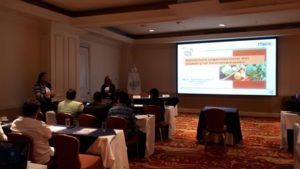 On April 5 and 6, 2018, the National Codex Committee in San Salvador, El Salvador was commissioned to initiate the Capacity Building project in Codex The training workshop was conducted by Eng Amanda Lasso.
On April 5 and 6, 2018, the National Codex Committee in San Salvador, El Salvador was commissioned to initiate the Capacity Building project in Codex The training workshop was conducted by Eng Amanda Lasso.
The welcome to the workshop was in charge of Lic. Mariana Carolina Gómez, Codex Contact Point and there was extraordinary participation of 30 Government and Academy officials.
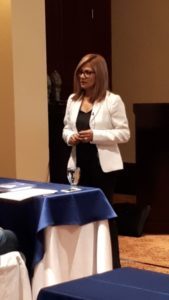 On April 12 and 13, 2018, the National Codex Committee in Tegucigalpa, Honduras was the second to receive the Capacity Building Workshop in Codex, again under the direction of Eng Amanda Lasso. The welcome to the workshop was in charge of Lic. Fanny Cárcamo, president of the National Codex Commission
On April 12 and 13, 2018, the National Codex Committee in Tegucigalpa, Honduras was the second to receive the Capacity Building Workshop in Codex, again under the direction of Eng Amanda Lasso. The welcome to the workshop was in charge of Lic. Fanny Cárcamo, president of the National Codex Commission
For this occasion, 43 government and Academy officials participated. We were also pleasantly surprised to receive congratulations from the Global President of the Codex Alimentarius Commission, Dr. Guillerme Da Costa, for the development of this regional initiative.
Spanish version of the message ⇓
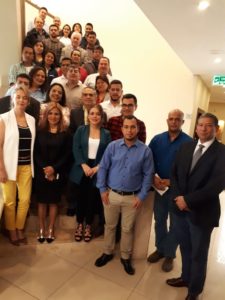 On April 19 and 20, 2018, the National Codex Committee in Guatemala City, Guatemala, was the third party to receive the Capacity Building Workshop in Codex, again under the direction of Ing. Amanda Lasso.
On April 19 and 20, 2018, the National Codex Committee in Guatemala City, Guatemala, was the third party to receive the Capacity Building Workshop in Codex, again under the direction of Ing. Amanda Lasso.
For this occasion, there was a participation of 35 Government and Academy officials.
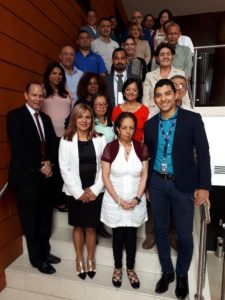 On May 3 and 4, 2018, the Codex Capacity Building Workshop was held with the National Codex Committee in Panama City, Panama. Again the Eng. Amanda Lasso was the one in charge to dictate the training.
On May 3 and 4, 2018, the Codex Capacity Building Workshop was held with the National Codex Committee in Panama City, Panama. Again the Eng. Amanda Lasso was the one in charge to dictate the training.
It was attended by 32 Government and Academy officials.
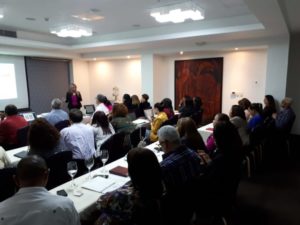 On May 9 and 10, 2018, the Codex Capacity Building Workshop was held with the National Codex Committee in Santo Domingo, Dominican Republic. Again the Eng. Amanda Lasso was the one in charge to dictate the training.
On May 9 and 10, 2018, the Codex Capacity Building Workshop was held with the National Codex Committee in Santo Domingo, Dominican Republic. Again the Eng. Amanda Lasso was the one in charge to dictate the training.
This workshop was attended by 25 government officials and the Academy.
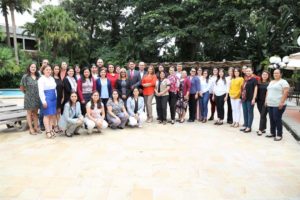 On November 14 and 15, 2018, the Capacity Building Workshop in Codex was held with the National Codex Committee in San José, Costa Rica. For this occasion, 3 officers of the Codex Costa Rica Office participated: Mr. Tatiana Cruz, Mr. Amanda Lasso, and Mr. Melina Flores.
On November 14 and 15, 2018, the Capacity Building Workshop in Codex was held with the National Codex Committee in San José, Costa Rica. For this occasion, 3 officers of the Codex Costa Rica Office participated: Mr. Tatiana Cruz, Mr. Amanda Lasso, and Mr. Melina Flores.
For this workshop, 41 Government, Academy, and Industrial officers participated.
